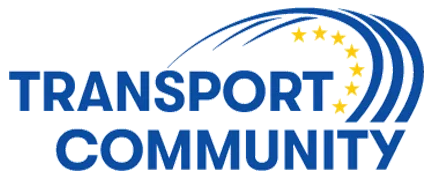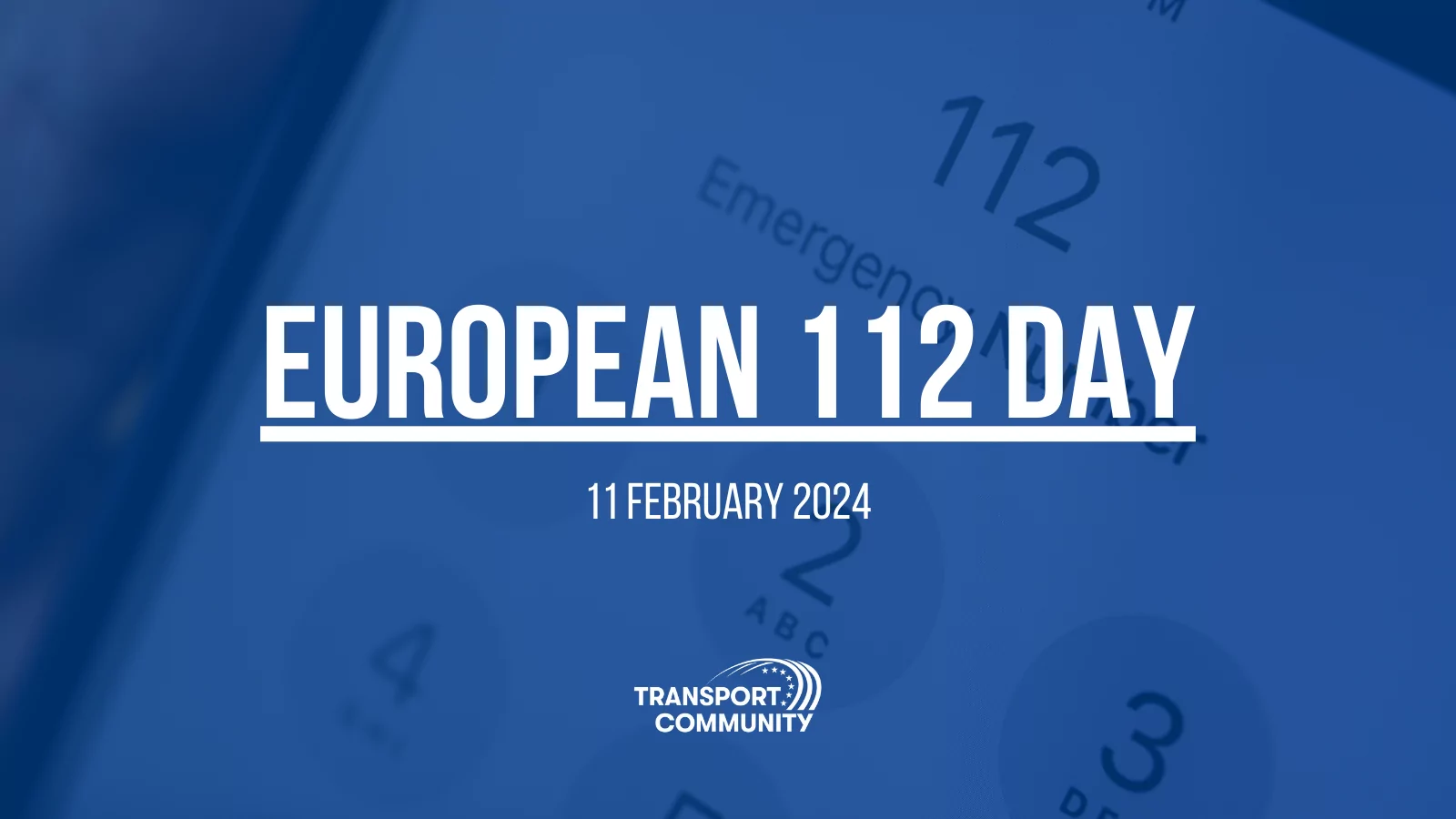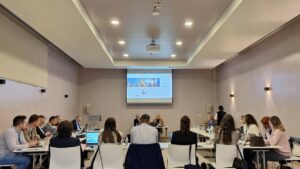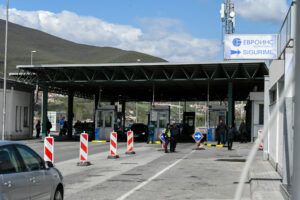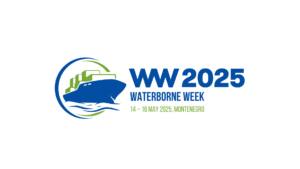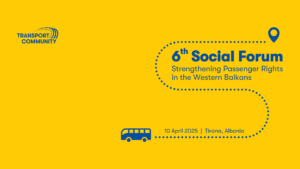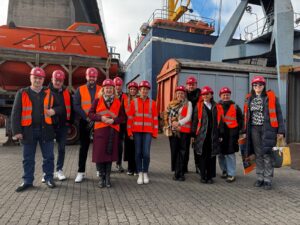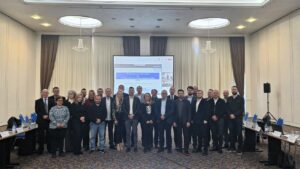WESTERN BALKANS – 11 February marks European 112 Day, a day dedicated to raising awareness about the European emergency number 112 and recognising the crucial work of emergency services personnel across Europe. As we commemorate this important day, the Transport Community Permanent Secretariat joins institutions, communities, and organisations across the continent in highlighting the significance of prompt and efficient emergency response.
Whether it is medical emergencies, accidents, natural disasters, or any other unforeseen event requiring immediate attention, 112 ensures that help is just a phone call away. The emergency services personnel’s commitment and resilience in the face of adversity are truly commendable, and we extend our deepest gratitude for their invaluable service.
In addition to recognising the efforts of emergency responders, European 112 Day serves as a reminder to the public about the importance of knowing and utilising the 112 number responsibly.
The implementation of 112 and eCall is uneven in the Western Balkans, and further improvements can be done on all sides. The forerunners are North Macedonia, Montenegro, and Kosovo[*], who have implemented 112. Albania has implemented the policy partially in its capital, while Serbia, and Bosnia and Herzegovina did not implement it. The Observing Participants that contributed to the TCT research – the Republic of Moldova, and Georgia have implemented 112. The eCall has not been implemented anywhere in the region, and the Transport Community will strive to achieve further progress in the area.
The Transport Community Permanent Secretariat remains convinced that the Western Balkans can leap forward in implementation of 112 and eCall. We are looking forward to the next Technical Assistance and Information Exchange instrument of the European Commission (TAIEX) event, to be organised on 21-22 February 2024 in cooperation with the colleagues from North Macedonia, to see how our common work can be enhanced and become more effective in this regard.
The event will gather officials from the EU Delegation to North Macedonia, the European Emergency Number Association, the South East European Health Network, experts from the Greek Parliament, Emergency Response Agency in Finland, the Fire University in Warsaw, and the Emergency Medical Dispatch Centre in Slovenia. They will engage in discussion with the officials of the Regional Partners and the Observing Participants to explore the further developments concerning 112 deployment.
We also believe that every second matters and herewith follow up on the already provided assistance for fire and rescue services concerning accidents during transport of dangerous goods. The Transport Community Permanent Secretariat is here to help the Regional Partners and the Observing Participants further in implementing these important policies that have impact on life of every citizen.
Background
Introduced in 1991, the European emergency number 112 serves as a lifeline in emergency situations, such as road crashes, accidents, fires, natural disasters, or manmade crises, providing a single point of contact for citizens in need of urgent assistance across all member states of the European Union.
In addition to the traditional 112 number, Europe has introduced the 112 eCall to speed up emergency response times and reduce the number of fatalities. The 112 eCalls automatically notify the emergency services in case of a road accident through technology fitted into vehicles.
It is estimated that 112 eCall can speed up emergency response times by 40% in urban areas and 50% in the countryside and can reduce the number of fatalities by at least 4% and the number of severe injuries by 6%[2].
[*] This designation is without prejudice to positions on status, and is in line with UNSCR 1244/1999 and the ICJ Opinion on the Kosovo declaration of independence
[2] https://transport.ec.europa.eu/transport-themes/intelligent-transport-systems/road/action-plan-and-directive/interoperable-eu-wide-ecall_en
